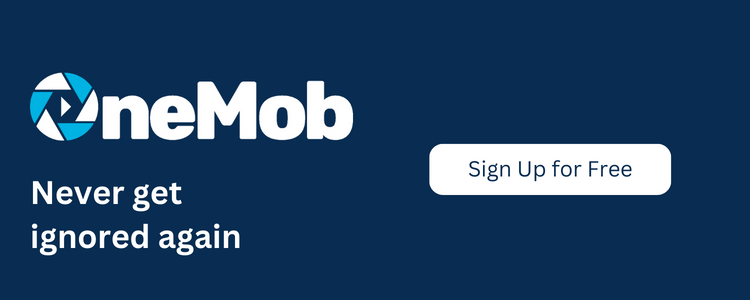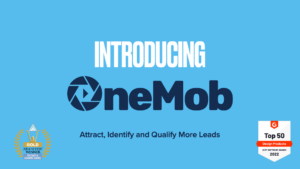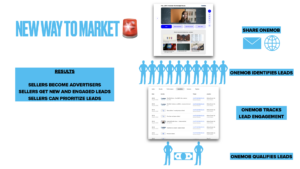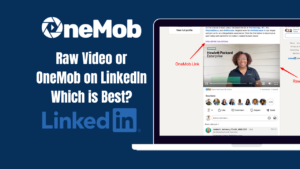As businesses continue to evolve, it’s important to have tools that can help improve sales processes and drive revenue growth. This is where sales enablement apps come into play. These apps offer a range of features that can help sales teams streamline their workflow and achieve better results.
Sales enablement apps are software solutions that are designed to empower sales teams by providing them with the tools they need to engage with prospects and close deals more effectively. These apps bring together a range of functionalities, including content management, sales analytics, and lead nurturing, to help salespeople work smarter, not harder.

One of the biggest benefits of sales enablement apps is that they can help sales teams become more productive. By providing salespeople with a centralized platform to manage all their sales activities, these apps can help reduce the time and effort required to complete tasks, such as creating proposals, sending emails, or updating CRM records.
Another key benefit of sales enablement apps is that they help sales teams become more effective at engaging with prospects and closing deals. These apps provide sales teams with access to a range of tools and resources, such as sales training materials, product information, and competitive insights, that can help them better understand their prospects’ needs and tailor their messaging accordingly.

The Benefits of Sales Enablement Apps for Sales Teams
Increased Productivity: Sales enablement apps can help sales teams become more efficient by providing a centralized platform to manage their sales activities, reducing the time and effort required to complete tasks.
Improved Sales Performance: By providing salespeople with access to a range of tools and resources, such as sales training materials and competitive insights, sales enablement apps can help sales teams better understand their prospects’ needs and tailor their messaging accordingly, leading to higher win rates and revenue growth.
Enhanced Collaboration: Sales enablement apps can help improve collaboration among team members, enabling them to share knowledge, best practices, and insights, and work together more effectively to achieve common goals.
Better Customer Engagement: Sales enablement apps can help sales teams deliver more engaging customer experiences by providing them with personalized content, interactive tools, and other resources that can help them better understand their prospects’ needs and interests.
Key Features of Sales Enablement Apps
Sales Enablement Apps are essential for businesses looking to streamline their sales processes and improve their bottom line. These apps offer a plethora of features that cater to the needs of sales teams, from content management to analytics to integration with other sales tools.
Content Management and Organization
One of the key features of Sales Enablement Apps is their ability to manage and organize content. These apps allow sales teams to store, manage, and distribute their sales collateral more efficiently. With Sales Enablement Apps, sales reps can easily access the latest and most relevant content, such as presentations, case studies, and product information, ensuring that they are always equipped with the right information to close deals.
Sales Enablement Apps also offer powerful search capabilities that allow sales reps to quickly find the content they need. With advanced tagging and categorization features, sales teams can easily organize and filter their content based on various criteria, such as product line, buyer persona, or sales stage.
Sales Training and Coaching Tools
Another important feature of Sales Enablement Apps is their ability to provide sales training and coaching tools. These apps offer a range of resources, such as online courses, certification programs, and coaching sessions, that help sales reps improve their skills and knowledge. With Sales Enablement Apps, sales teams can access personalized training programs that are tailored to their specific needs, ensuring that they are always up-to-date with the latest sales techniques and best practices.
Some Sales Enablement Apps also offer coaching and mentoring features that allow sales reps to receive feedback and guidance from more experienced team members. By providing ongoing training and coaching, Sales Enablement Apps help sales teams improve their performance and achieve their sales goals.
Analytics and Reporting Capabilities
Sales Enablement Apps also offer powerful analytics and reporting capabilities that help sales teams track their performance and identify areas for improvement. These apps provide detailed insights into various metrics, such as content usage, engagement, and conversion rates, allowing sales reps to understand how their content is performing and make data-driven decisions.
By analyzing these metrics, sales teams can identify content that is resonating with prospects and adjust their sales strategies accordingly. With real-time dashboards and reports, Sales Enablement Apps provide sales teams with the visibility they need to optimize their sales processes and drive revenue growth.
Integration with CRM and Other Sales Tools
Sales Enablement Apps also offer seamless integration with CRM and other sales tools, such as marketing automation, email, and social media. By integrating these tools, sales teams can streamline their workflows and improve their efficiency. For example, by integrating Sales Enablement Apps with CRM, sales reps can easily access customer data and insights, allowing them to personalize their sales outreach and improve their conversion rates.
Personalization and Customization Options
Another important feature of Sales Enablement Apps is their ability to offer personalization and customization options. These apps allow sales teams to create personalized content, such as customized proposals, quotes, and presentations, that are tailored to the needs and preferences of their prospects.
By providing personalized content, sales teams can differentiate themselves from competitors and build stronger relationships with prospects. Sales Enablement Apps also offer customization options, such as branding, design, and messaging, that allow sales teams to tailor their content to their company’s branding and style guidelines.
Mobile Access and Offline Capabilities
Finally, Sales Enablement Apps offer mobile access and offline capabilities, allowing sales reps to access their content and tools on-the-go and in low connectivity areas. With mobile access, sales reps can access their content from their smartphones and tablets, allowing them to stay productive and responsive even when they are away from their desks.
Offline capabilities also allow sales reps to access their content in areas with limited or no internet connectivity. By offering mobile access and offline capabilities, Sales Enablement Apps ensure that sales teams are always equipped with the right tools and information to close deals, no matter where they are.
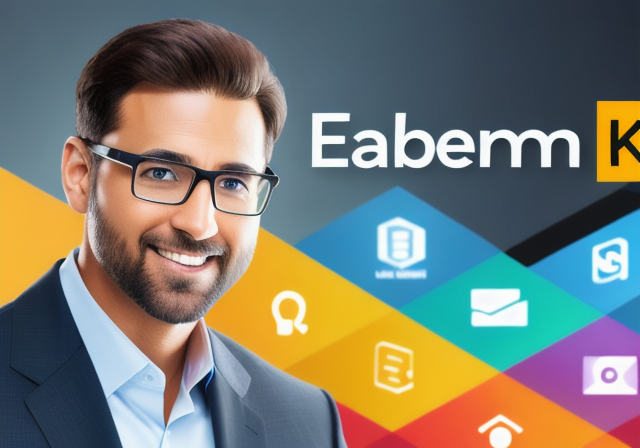
Niche Topics in Sales Enablement Apps
Sales enablement apps are becoming an increasingly popular solution for companies looking to improve their sales processes. While many people are familiar with the basic features of these apps, there are several niche topics that are worth exploring. These topics include lead generation, the role of AI and machine learning, and best practices for implementation and adoption.
Improving Lead Generation
One of the key benefits of sales enablement apps is their ability to improve lead generation. These apps can help sales teams identify high-quality leads, track their progress through the sales funnel, and provide them with the tools they need to close deals. By using a sales enablement app, companies can ensure that their sales teams are focusing on the most promising leads, which can lead to increased conversion rates and higher revenue.
Some of the ways that sales enablement apps can help with lead generation include:
- Lead scoring and prioritization based on data analysis.
- Automated lead nurturing and follow-up.
- Integration with marketing automation tools to improve lead quality.
The Role of AI and Machine Learning
Another important topic in sales enablement apps is the role of artificial intelligence (AI) and machine learning. These technologies are increasingly being used in sales enablement apps to help sales teams work more efficiently and effectively. AI and machine learning can help with lead scoring, predictive analytics, and even personalized content creation.
Some of the ways that AI and machine learning are being used in sales enablement apps include:
- Lead scoring and prioritization based on predictive analytics.
- Automated content creation and personalization based on data analysis.
- Real-time sales coaching and feedback based on AI-powered analytics.
Best Practices for Implementation and Adoption
Finally, it’s important to consider best practices for implementing and adopting sales enablement apps. While these apps can be incredibly powerful tools, they are only effective if they are used properly. Companies need to ensure that their sales teams are properly trained on how to use these apps and that they are integrated seamlessly into existing sales workflows.
Some best practices for implementing and adopting sales enablement apps include:
- Providing comprehensive training and support for sales teams.
- Integrating the app with existing sales tools and workflows.
- Setting realistic goals and metrics for success.
- Continuously monitoring and optimizing app usage and performance.
By following these best practices, companies can ensure that their sales enablement apps are delivering maximum value and ROI.

Conclusion
These niche topics offer valuable insights into the world of sales enablement apps. By focusing on lead generation, the role of AI and machine learning, and best practices for implementation and adoption, companies can maximize the value of these powerful tools. Whether you’re a seasoned sales professional or just starting out, understanding these topics can help you stay ahead of the curve and achieve your sales goals.
Lesser-Known Details of Sales Enablement Apps
Sales enablement apps have come a long way since their inception. Originally, they were designed to simply store and distribute sales collateral, but now they offer so much more. The first sales enablement app was introduced in the late 1990s, and it was a simple database that stored sales collateral such as brochures and presentations. Since then, sales enablement apps have evolved to become an essential tool for sales teams. They are now equipped with features such as content creation, analytics, and even AI-powered tools.
The impact of sales enablement apps on sales team productivity and success cannot be overstated. According to a study by CSO Insights, companies that use sales enablement technology experience a 15.3% increase in win rates, and a 12.4% increase in quota attainment. Additionally, sales reps who use sales enablement tools are 34% more likely to hit their sales quotas than those who don’t.
Successful Sales Enablement App Implementations
There are many examples of successful sales enablement app implementations across various industries. One such example is HubSpot, a marketing and sales software company that uses its own sales enablement tool, HubSpot Sales Hub. With this tool, HubSpot’s sales team can easily access and share content, track prospect engagement, and even automate follow-up emails. This has resulted in a 38% increase in sales productivity and a 72% reduction in sales cycle length.
Another example is Cisco Systems, a multinational technology company. Cisco’s sales enablement app, Cisco SalesConnect, provides sales reps with access to relevant content, training materials, and customer insights. As a result, Cisco experienced a 4% increase in revenue and a 5% increase in deal size.
Overall, sales enablement apps have become an invaluable tool for sales teams, offering a wide range of features that can help increase productivity and success. As technology continues to advance, we can expect to see even more innovative sales enablement solutions in the future.

As you can see, the history and evolution of sales enablement apps is fascinating. From simple databases to AI-powered tools, they have come a long way. The impact they have on sales team productivity and success is undeniable, and there are many successful implementations across various industries. If you’re not already using a sales enablement app, now is the time to consider implementing one. Who knows what kind of success it could bring to your sales team?
Conclusion
As we have seen, sales enablement apps can be a game-changer for businesses of all sizes and industries, providing a wide range of benefits that can boost sales effectiveness, streamline workflows, and enhance customer engagement.
Key Benefits and Features
Some of the key benefits and features of sales enablement apps include:
- Centralized Content Management: With a sales enablement app, businesses can store all their content in one place, making it easier for sales reps to access and share relevant materials with prospects and customers.
- Personalized Experiences: Sales enablement apps allow businesses to create personalized experiences for each prospect or customer, tailoring content and messaging to their specific needs and preferences.
- Analytics and Reporting: Sales enablement apps provide valuable insights into content usage, engagement, and effectiveness, allowing businesses to make data-driven decisions and optimize their sales strategies.
- Collaboration and Communication: Sales enablement apps facilitate collaboration and communication between sales teams and other departments, enabling cross-functional alignment and knowledge sharing.
Importance of Sales Enablement Apps
Overall, sales enablement apps are crucial for businesses that want to stay competitive and succeed in today’s fast-paced sales landscape. By providing sales reps with the tools and resources they need to engage with prospects and customers effectively, businesses can drive revenue growth, build stronger customer relationships, and achieve their sales goals.
Call to Action
If you’re looking to take your sales game to the next level, we encourage you to consider implementing a sales enablement app for your business. With its many benefits and features, a sales enablement app can help you optimize your sales processes, improve collaboration and communication, and drive better results.
At OneMob, we offer a powerful sales enablement platform that can help you create engaging microsites, personalize content, track analytics, and more. Sign up for a free account today and see how OneMob can revolutionize your sales game!


FAQ
What industries can benefit from sales enablement apps?
Any industry that relies on sales to drive revenue can benefit from sales enablement apps. This includes industries such as tech, healthcare, finance, and more.
What kind of content can be stored in a sales enablement app?
A sales enablement app can store a wide variety of content, including product collateral, sales decks, case studies, testimonials, and more. Basically, any content that can help a sales rep engage with a prospect or customer effectively can be stored in a sales enablement app.
How can sales enablement apps help improve collaboration between sales teams and other departments?
By providing a centralized platform for content management and communication, sales enablement apps can help break down silos between teams and improve cross-functional collaboration. For example, marketing teams can provide sales reps with relevant content, while sales teams can provide feedback on content effectiveness to help inform marketing strategy.


